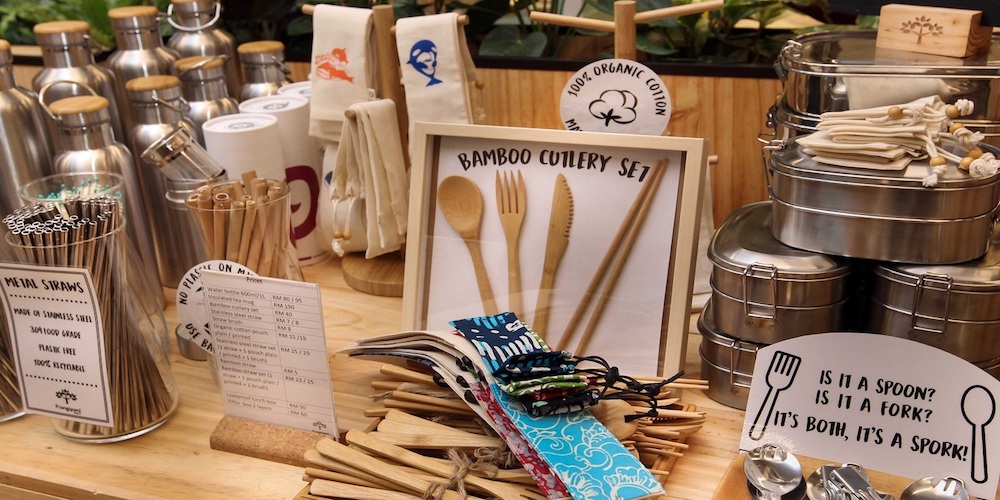Improving life and livelihood in North East through new bamboo-based technology & value-added products

Bamboo-based technologies spanning applications like polyhouses, electrical appliances, food, and fiber are bringing about improvements in the life and livelihood of people in the North East (NE) India.
Bamboos, indeed, are now changing the dynamics of people in NE to think an alternative option for better and sustainable livelihood.
Several bamboo-based technologies and products like bathroom sanitary and electrical products, bamboo buildings and structures for relief and rehabilitation in the wake of major disasters, laptop stand, photo frames, bamboo shoot processing, cane furniture, plyboards have been developed, and IPRs also filed on some of them. These have generated employment of the order of 30 million man-days per annum.
The efforts of the North East Centre For Technology Application & Reach (NECTAR), an autonomous institute of the Department of Science & Technology, Govt of India, has increased the value addition in bamboo products from 10% to as high as 70% in various industrial applications.
Furniture made with new designs and engineered bamboo is gaining popularity and attracting the attention of architects, designers, and interior decorators. More than 42 lakh sq. ft. area of engineered bamboo buildings and structures have been constructed for relief and rehabilitation in the wake of major disasters.
Bamboo-based board/ply/timber flattened board, veneer board, jute composites, plastic composites have been developed and commercialized. A total of 576 school rooms made of engineered bamboo house 20000 children in Chhattisgarh.
Under the National Mission of Bamboo Applications of the Department of Science and Technology, NECTAR has been creating a bamboo-based ecosystem and developing technologies, and promoting and commercializing them.
These include bamboo disposable cutleries & bamboo bottle prototypes, bamboo-based bathroom sanitary, bamboo cricket bat and stamps and electrical products, etc. These, as well as the polyhouse technology, which uses minimum steel with bamboo connections eliminating the use of nuts and bolts, have been patented and are being commercialized now.
NECTAR has also created a centre of excellence having zero waste-based complete sets of available technologies which are used for demonstration, hands-on training to the interested entrepreneurs at the NECTAR-Bamboo & Cane Development Institute (BCDI), Agartala,
Local people are being trained to make bamboo furniture decoration products such as flower vases, pen stands, basketry products, jewellery products as well as utility products. Around 2,50,000 persons in primary processing and related activity who were integrated with the industry for the supply of mats and also contributed to alternative livelihood. More than 1000 participants are proposed to train on various specialised products/processes, including bam-bottle and bamboo cricket bat: bamboo biscuit and pickle, etc., by next financial year. A self-sustaining testing lab has been established at the NECTAR-BCDI centre to help industries in getting their products tested. A bamboo bottle indigenous mechanized production facility has also been established for large-scale production.
The major thrust areas of NECTAR, where technologies have been developed, tested, and commercialised are include:
Wood substitutes and composites
Different types of bamboo boards like flatten, veneer, jute composite, corrugated sheets.
Construction and Structural Applications Bamboo composites have opened new vistas for lightweight, durable and aesthetic construction for a variety of applications, enabling informed choices for housing, community, and functional structures, including high-end construction for areas like Leh-Ladakh.
Food and Agro-processing
Bamboo shoots carry the potential of value-added economic activity through community entrepreneurial initiatives in cultivation, processing, and packaging. Cluster level processing and packaging technology of bamboo shoots is standardized for 7 days and were tested microbiologically, chemically & organoleptically.
Processing machines and technology
The Mission worked with machinery manufacturers to develop a range of efficient, sturdy, and low-cost tooling and processing machinery suited to Indian conditions and species, to reduce drudgery, improve productivity and minimize wastage.
Bamboo for Energy
The gasification of bamboo can produce clean and renewable electricity and a range of valuable byproducts like high-grade charcoal.
Industrial Products
Bamboo processing ‘waste’ is an excellent source material for high-grade charcoal and activated carbon which can serve as a fuel, absorbent, and conductor. Activated carbon can be used as deodorant, disinfectant, medicine, agricultural chemical, and absorbent of pollution and excessive moisture. Technologies to enable the manufacture of bamboo charcoal and activated carbon have been established.
Along with supporting such technology development, value addition of products, and entrepreneurial ventures connected to bamboo, NECTAR has been supporting this sector by collating and disseminating information related to bamboo and its application in user-friendly formats. This initiative has completely changed the dynamics of people in NE to think an alternative option for better and sustainable livelihood.



